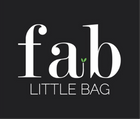
How to Talk to Your Daughter About Her First Period
Menstruating is a natural biological process that every girl and woman goes through, but that doesn’t make the experience any easier the first time round.It brings important changes that are best to address before they happen so your daughter knows what to expect and she can be fully prepared.
Usually, girls get their menarche, the first menstrual cycle, between the ages of 9 to 14. It may happen to your daughter during her time at school, even during class! To prepare your daughter for this moment, it’s great toestablish an open conversation to touch on different subjects. From the sensations and hormonal changes that the first period brings, to PMS and flow levels, to the right period products for her.

Why Talk About Periods?
First, let's address the obvious. Periods are a part of being human, so its beneficial forboth boys and girls to learn about them. Denying knowledge to your boys will only make them more oblivious to the intracacies of periods as adults, adding to the taboo around them.
Second, the idea of letting your children only learn about periods in school is appealing, but it may not necessarily cover the subject adequately. Teachers do their best but you can’t be sure of what misinformation is going around among the students. Providing your children with knowledge is advantageous to them and will make them more confident in their own bodies.
Having this conversation is a great opportunity to bond with your children. You got this!
Familiarise Yourself With The Topic
Until very recently, talking about periods was a complete taboo, so don't feel discouraged if addressing the topic is unfamiliar to you. Just like in other areas of your life when facing a challenge, being prepared is always better, and practising can make you more comfortable.
Although periods may have been part of most of your life, either because you menstruate or your partner does, there are elements to the whole cycle that you may need to revisit in order to talk about them confidently. Read over the whole biological process again, from the functioning of the pituitary gland to hygiene and the variety of products available in the market.
It is important that you use the medical terms for each body part and process to avoid confusion and misunderstandings. The best you can do for your children is to provide clarity and accurate information about their bodies, so they can learn to love them. If you have trouble saying certain words out loud, practice by yourself until it starts to feel more natural.
Practice Your Period Speech
Now that you are familiar with the terminology and you can identify each part of the female reproductive system -it would be great if you could do the same with the male anatomy-, you can begin to organise how you are going to break it down to your children.
No bees and flowers metaphors are needed. The human body is beautiful and you don't haveto make it about anything else. Perhaps a short list of topics can help you remember everything you want to say; you could also make it into a story with anecdotes from personal experience. Your starting point comes from knowing what resonates best with your children.
Whatever method you choose, try your best to make it engaging and open, and consider your children' feelings. The way you approach the subject will signal to them that they can trust you as a frank source. Talking about first periods may be a sensitive topic to them, so this is an excellent opportunity to connect with your children in a safe space. They may even open up to you too, and you will get to know how they are feeling about it better.

Be Prepared For Answering Questions
Your children are smart and curious. They will get back to you with questions and, if you're lucky, they will tell you their experiences. Be prepared for this part of the conversation with open arms and zero judgement. Also, their doubts may arise during the following weeks, months or years. Keep the conversation open so they can approach you whenever they need to.
This is the moment when you have to exercise your active listening skills.
- Observe: the verbal and non-verbal messages your children send and provide appropriate feedback.
- Don't interrupt them when expressing a thought or a question.
- Don't jump to conclusions.
- Ask questions to fully understand what they are trying to say; this will make them feel heard.
- Remember, this conversation is not about you. Restrain from going too much into your own experiences.
What To Bring To School To Be Period Ready
Since no one knows the exact day of your daughter's first period, it is always a good practice for her to carry the period essentials in her school bag. This will help reduce the risk of having accidents when her first period comes. Your daughter can have a small bag with a couple of pads, tissues, and a Fab Little Bag to dispose of the used items easily and discreetly in the bin.
To prevent your daughter from being unprepared for the unexpected arrival of her first period, you can purchase different types of sanitary products beforehand. Explore them together and find the benefits of each one.
Standard Options :
- Pads
- Pantyliners
- Tampons (often better to try once more experienced)
Eco options:
- Menstrual cup (often better to try once more experienced)
- Menstrual panties
- Reusable cloth pads
